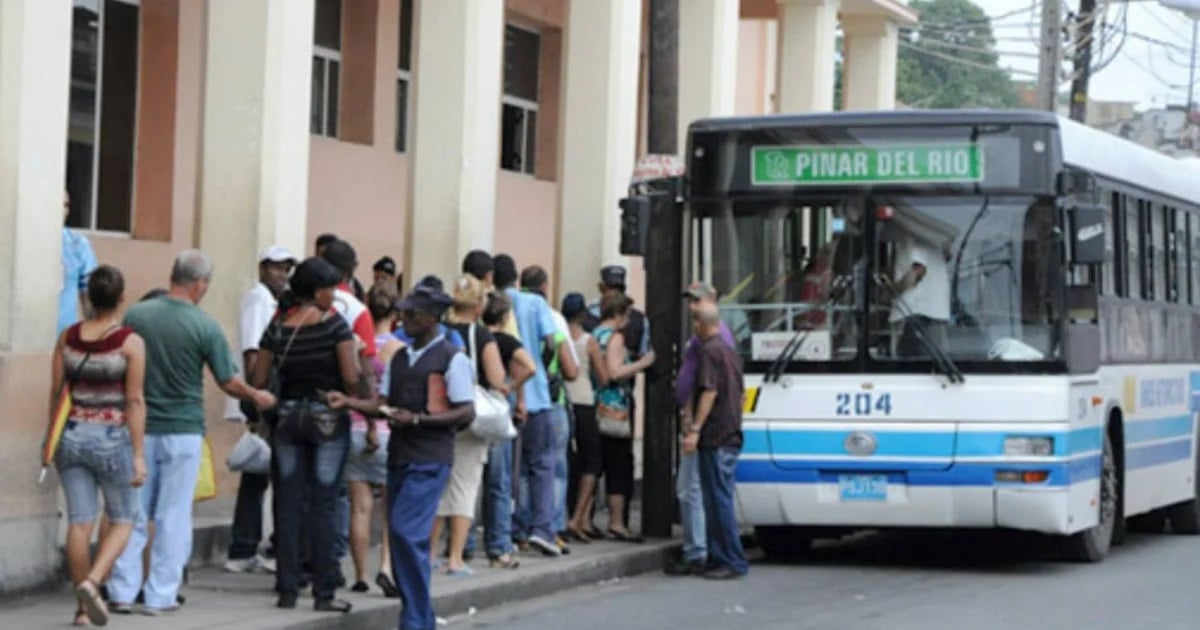
The encouraging news regarding transportation seems to be lost in the life of Cubans. This is evidenced by the paralysis of public transportation in the province of Pinar del Río due to a lack of fuel, according to authorities.
The Provincial Transport Directorate in Pinar del Río announced on Thursday, September 12, that "due to the insufficient availability of fuels in the country," it would adopt several measures, including:
- Suspend public transportation in the capital city starting Saturday, September 14.
- Paralyze the intermunicipal routes from the capital city to the rest of the territories, which will be restored when fuel availability allows.
- Suspend the train departures covering the Pinar-Habana route.
They pointed out that on that day the train traveling from the city of Pinar del Río to Guane had a departure for the transportation of students, who will return on September 16 at the usual time.
The transportation situation in Cuba is catastrophic. At times due to the lack of fuel and at others due to the outdated vehicle fleet on the island, lacking spare parts and with years of use that exceed what the manufacturers intended.
Cuban leader Miguel Díaz Canel has acknowledged the crisis in this sector, while justifying that it is a phenomenon linked to the global crisis.
During one of his YouTube programs 'Desde la Presidencia', which he hosts himself, the leader stated that the sector is experiencing "the worst moments in recent years."
At the end of April, 52% of the routes of the provincial transport companies were paralyzed, indicated the Minister of Transport (Mitrans), Eduardo Rodríguez Dávila, to the official newspaper Granma.
According to the official's data, previously 5.9 million travelers were transported daily, and now barely 2.7 million; as a result, many people are forced to use private transportation, the prices of which are often unaffordable for most Cubans.
The crisis has reached such a point that the special municipality of Isla de la Juventud faces a serious risk of becoming isolated.
Rodríguez Dávila said on this topic that guaranteeing transportation to and from the Island has always been a priority, but the aging of the vessels and the lack of adequate maintenance are pushing the situation to the limit.
In line with this situation, the national coordinator of the Committees for the Defense of the Revolution (CDR), Gerardo Hernández Nordelo, drew criticism by boasting about the strength of the organization for managing to get a somewhat broken bus running in Villa Clara.
"Where there are cederistas, there are no ghosts! And much less in Camajuaní!" Hernández wrote on his social media, along with a video showing him pushing a bus with a group of people.
Far from being amusing, the situation of pushing a bus reflects a problem that directly affects the daily lives of thousands of Cubans who depend on a collapsed transportation system.
What do you think?
COMMENTFiled under: